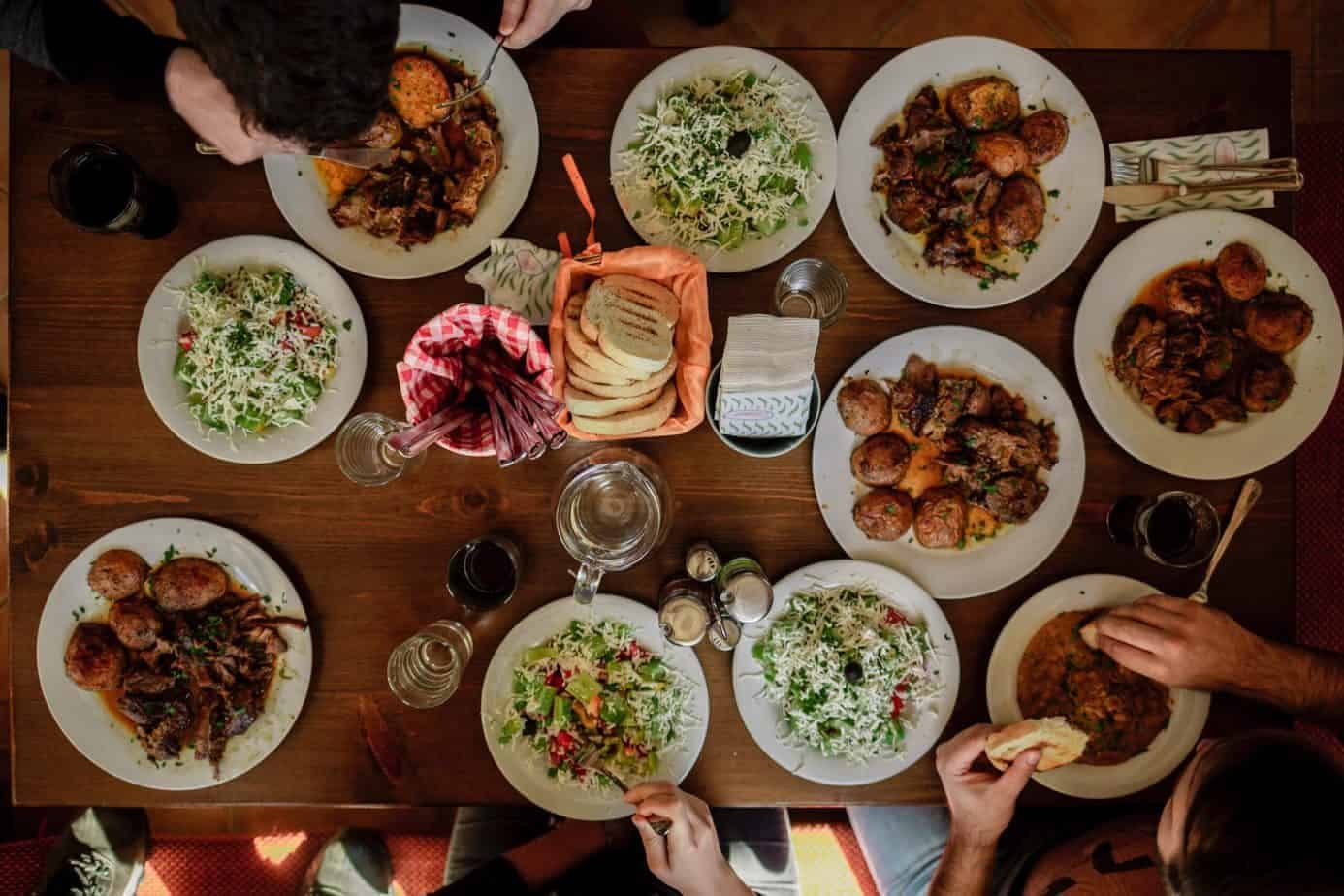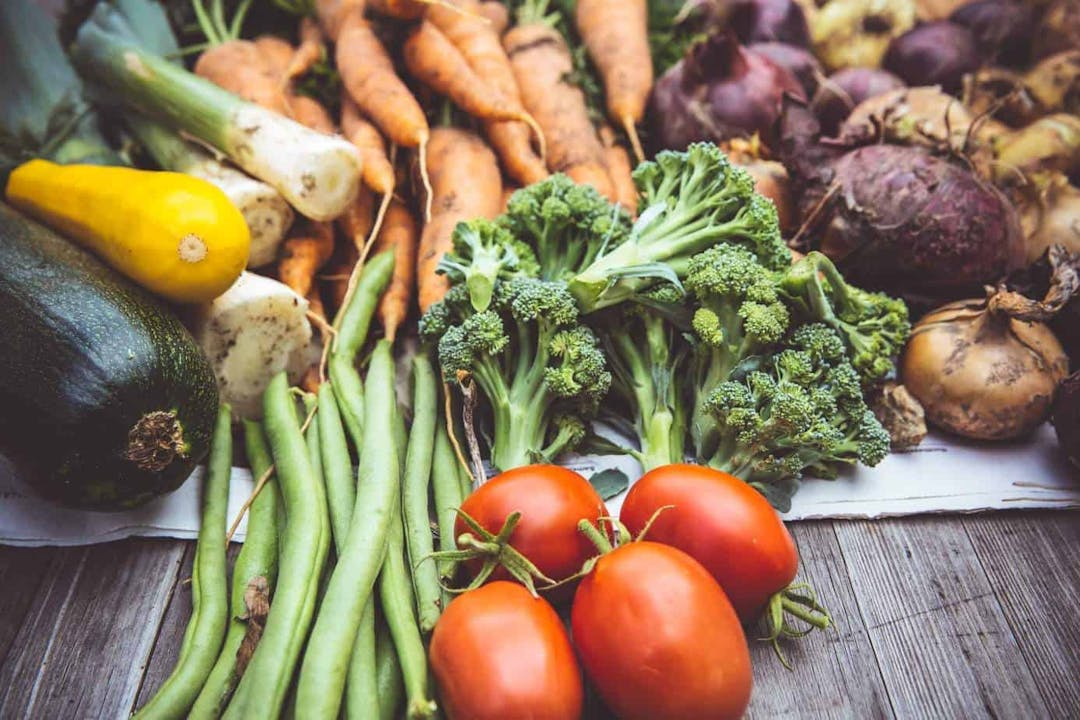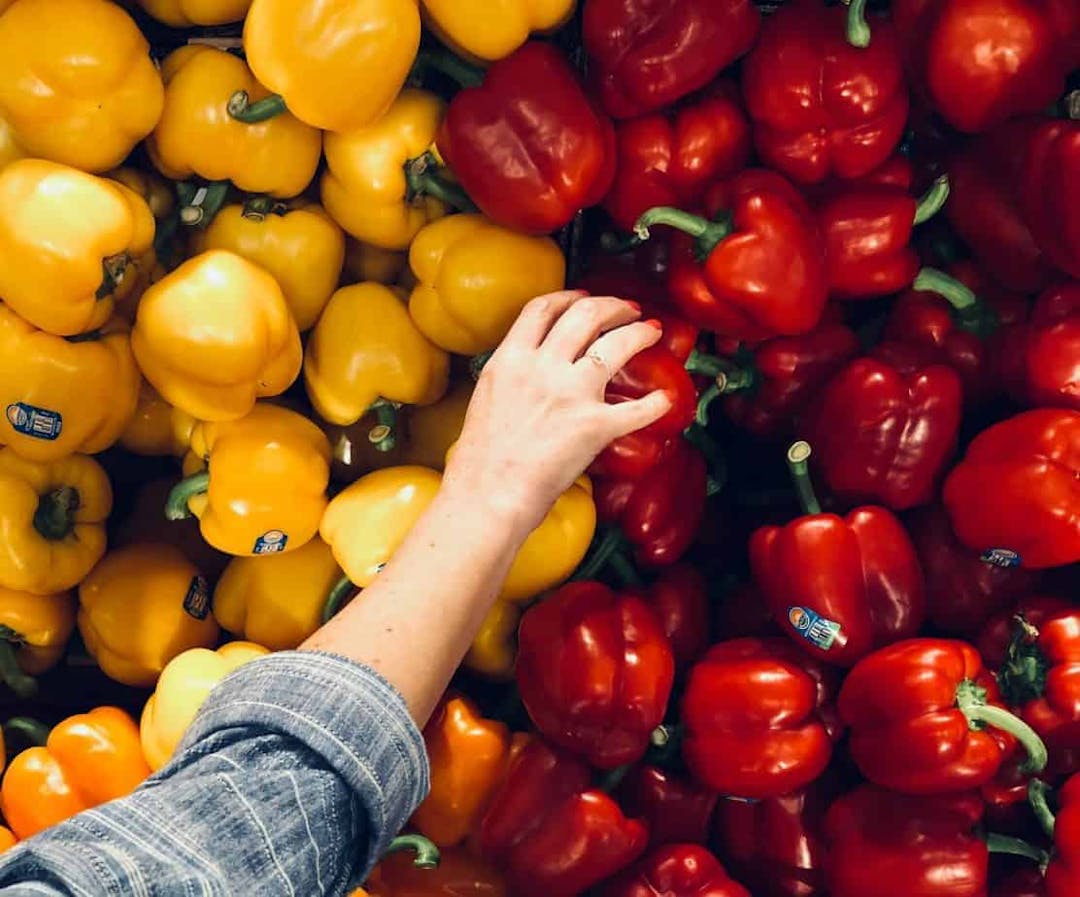


Find foods you can eat.
11 Tips for Coping With Dietary Restrictions Around the Holidays
Published on November 16, 2021The holiday season is often centered around bringing people together over meals and as a result, it can be a stressful time for those with dietary restrictions. What will you be able to eat? Will the host be offended if you refuse to try the dish they prepared? How do you clearly and tactfully communicate your dietary restrictions to others without making them feel badly about their own food choices? It certainly doesn’t help that many of the top 8 food allergens including milk, eggs, wheat, soy, fish, shellfish, tree nuts, and peanuts, are often found in popular holiday dishes. As both a registered dietitian and someone with a few dietary restrictions of my own, I’ve compiled a list of tips and tricks to help you navigate!
1. Communicate with the host
If you’re traveling, it’s helpful to kindly communicate your dietary restrictions to the host so they are aware. If possible, try to do this at least 1-2 weeks prior to the gathering so the host has ample time to make accommodations if they choose to. You can even ask the host what they plan to serve so you know what dishes to steer clear of ahead of time, and minimize stress on the day of the gathering.
To ensure this conversation is well-received, be open and honest about why you avoid certain foods. For example, “I was recently diagnosed with Celiac disease and my doctor told me that it’s really important that I avoid gluten and foods that may have come into contact with gluten. Unfortunately, if I eat these foods by mistake, I can get really sick. I hate to be a bother, but do you have an idea of what you’ll be serving so I know what I may need to avoid ahead of time?”
2. Offer to bring something that you enjoy and can eat
After communicating your dietary restrictions to the host, it’s nice to follow up with offering to bring 1-2 “safe” dishes that are suitable for your restrictions. Be sure to bring enough so others can enjoy these items as well. This will not only help ensure that you’ll be able to eat something at the gathering, but it also helps to alleviate stress on the host for adding multiple new dishes to their existing menu. Consider bringing one dish that you can eat as your main course and one dessert item so that you know you can partake in the entire meal regardless of what is served.
If you need help finding safe dishes to bring, you can use the Fig app to find groceries that fit your dietary needs!
3. Use the holidays as an opportunity to experiment with new recipes
Since many people have a few extra days off from work around the holidays, it can be a great time to experiment in the kitchen. There are plenty of food blogs dedicated to different dietary restrictions, many of which provide holiday recipes. Whether you’re low FODMAP, gluten-free, dairy-free, vegan, nut-free, or anything in between, you’re sure to find at least a few suitable and festive recipes that appeal to you. Additionally, if there is a particular dish that you used to love but can no longer eat due to a dietary restriction, try looking up recipes for the dish that incorporate substitutions for your restriction. Alternatively, you can use a regular recipe, but get creative and experiment with substitutions on your own. If it’s a success, you may even want to add that dish to your usual meal rotation!
4. Have a snack before going to holiday gatherings
Although the holidays often revolve around big meals, at the end of the day, they’re more about spending time with family and friends than about the food being served. Going into a gathering on an empty stomach can take away from your enjoyment, particularly if you find you aren’t able to eat many of the foods served once you get there. In addition to bringing a dish or two of your own, it’s helpful to have a small snack before you leave, just in case. This way your blood sugar won’t drop too low and you’ll be less focused on the food, and more focused on enjoying time with loved ones.
5. Get comfortable with saying “no thank you”
It can be difficult to decline food from friends and family, especially when they make the dish themselves and really want you to taste it. Food is a way that people express love and caring for one another, so when someone declines, the other person may feel a bit rejected without an explanation. While there are certain dietary restrictions that can be bent every once in a while without causing serious harm if you so choose, other restrictions are more serious and require strict adherence in order to avoid dangerous adverse reactions.
Not everyone will always understand the repercussions of straying from your dietary restrictions, even if only for one meal. Preparing a response ahead of time can help you feel confident in your ability to tactfully decline if you’re pressured to eat something. In these situations, it’s usually best to keep your message short and sweet, start with a compliment, and put it in “you terms.” This will help others understand and avoid making them feel badly for eating the food themselves. For example, rather than saying “I don’t eat that because it’s inflammatory,” try “that looks delicious and I wish I could try it, but unfortunately I get really sick from eating [insert food here].“
Don’t feel the need to over-explain yourself—you know your body best and what you can and cannot tolerate.
6. If you have a severe food allergy, be sure to keep an EpiPen handy, just in case
For those with serious food allergies, accidents can happen even when you’re careful and clearly communicate your allergies to the host or restaurant. For this reason, it’s always a good idea to carry an EpiPen with you whenever you leave your home, in case of emergency. This is particularly important when eating at someone else’s home, where “safe foods” may be subject to accidental cross-contamination.
7. If you’re hosting, ask your guests to bring non-food items
If you are hosting a holiday gathering at your home and have severe food allergies, it may be best to ask that guests bring non-food items such as plates, utensils, cups, or napkins, instead of food. This way, you can have more peace of mind knowing that the food served is free from anything you’re highly allergic to and from cross-contamination.
8. If you’re eating at a restaurant, look up the menu beforehand and call ahead
These days, most restaurants are able to accommodate dietary restrictions, plus, most restaurants post their menus online. Plan ahead by looking up the menu before you go to find a suitable option to order. Depending on your dietary restrictions and their severity, you may also want to consider calling up the restaurant before you go to inquire about your concerns and see if substitutions can be made. When you arrive at the restaurant, be sure to alert your server of your dietary restrictions as well.
9. Plan activities that don’t involve food
Organizing activities such as an outdoor sport, a board game, a movie, volunteering at a soup kitchen or animal shelter, or tickets to a performance can help bring people together in a way that isn’t just centered around food. Non-food activities are fun for everyone to take part in without you having to worry about what foods will and won’t be served.
10. Keep your favorite “safe” treats on hand to enjoy
Even though I’m a dietitian, I recognize that eating isn’t only for the purpose of nourishing our bodies with nutrients. Food can also serve as a source of enjoyment and not everything we eat has to be nutrient-dense 100% of the time in order to be healthy. During the holiday season, sweets and treats abound, and when you can’t eat the pumpkin pie or Christmas cookies that everyone else is enjoying, you may feel like you’re missing out on part of the fun of the holiday. In these instances, it’s helpful to ensure that you’ll have some suitable treats to serve or bring with you. ‘Tis the season to bake your favorite gluten-free, nut-free brownie recipe or keep a box of those tasty low FODMAP cookies you like in your pantry to take out and enjoy with company (in moderation, of course!).
11. Stay positive!
Remember that you are not alone. An estimated 32 million Americans have food allergies and even more individuals have medical conditions that also require various dietary restrictions. If people question why you aren’t eating certain foods, view this as an opportunity to kindly educate the person rather than feeling judged or embarrassed. Friends and family are likely to understand if you explain the reasoning behind your restrictions with kindness and compassion.
Summary
The holidays can be a challenging time for those with dietary restrictions, however, it is still possible to thoroughly enjoy the holiday season despite limitations on what you can and cannot eat. With a little preparation and planning, you’re sure to have a happy, healthy, and enjoyable holiday season.
Have you tried the Fig app? Tell Fig any ingredients you need to avoid, and Fig will show you thousands of products without those ingredients. You can also scan products at the grocery store to see if they fit your needs! Fig works with ANY ingredient-based diet, allergy or ingredient.
 How to Incorporate More Fiber into Your Diet
How to Incorporate More Fiber into Your Diet How to Start Grocery Shopping Like a Dietitian
How to Start Grocery Shopping Like a Dietitian